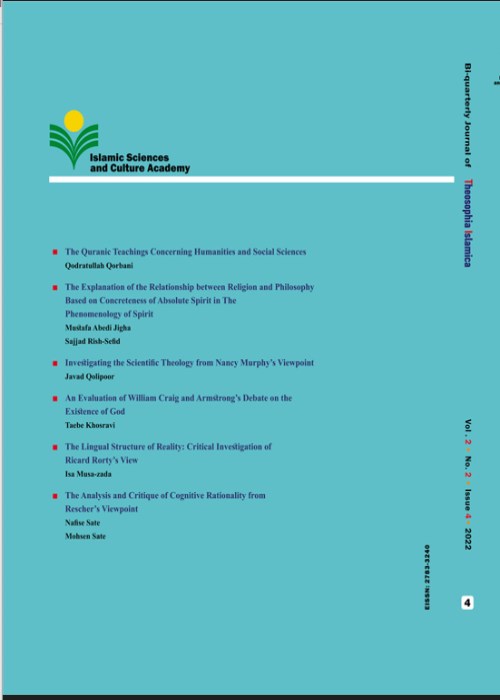Dualist Afterlives: Avicenna and Mullā Ṣadrā
Subscribing to the principles of logically valid reasoning and parsimony of presuppositions in the framework of a religion that hinges on a revealed eschatological message, the medieval Islamic philosophers were bound to interpret the Qurʾānic account of the afterlife in ways that may have compromised at least some of its literal meanings. However, to what extent precisely do these interpretations go against the grain of Revelation has to be determined separately in each particular case. Wholesale statements regarding the alleged coherence or incoherence of general types of philosophical theories with Revelation risk neglecting important variations between theories, and thereby rendering us blind to the scope of possibilities in the concepts involved. From this perspective, I will consider the eschatological implications of the psychological theories of Avicenna and Mullā Ṣadrā, who both subscribe to a dualistic view of human being and consequently claim that the afterlife does not concern one's body. Two questions will then emerge as especially central to dualistic accounts of the afterlife. (1) How do we make sense of the kind of first-personality that must be an irreducible constituent of existence in the hereafter, provided that the latter fulfills the eschatological promise given in the Revelation? For in order to be a justified reward or punishment for my acts in this life, the afterlife must be in an equally strong sense mine. In the Arabic Peripatetic tradition, many of the central doctrines of which Avicenna and Mullā Ṣadrā subscribe to, individuality entails materiality, which seems to suggest that human being can have a distinctly first-personal existence only when some kind of connection is preserved to the body as the necessary condition of one's individuation. (2) How do we account for the emphatically sensual descriptions of the hereafter in the Revelation? Again, in the Peripatetic tradition all cognitive acts that involve objects with sensible characteristics require bodily instruments of cognition, in the absence of which the revealed account is in danger of becoming a mere metaphor. In the light of these two questions, I will argue that Avicenna's dualism ends up with a rather narrow conception of the afterlife. He does try to give an account of a genuinely first-personal afterlife, and thereby presents a carefully argued departure from the Peripatetic tradition. But because of the way in which Avicenna separates the soul from the body, Avicennian afterlife is bound to remain exclusively intellectual. Thus, with regard to the second question Avicenna seems forced to interpret the Revelation in almost exclusively metaphorical terms. On the other hand, while following Avicenna in the first question, Mullā Ṣadrā conceives of the separate existence of the human soul in much broader terms than his predecessor. By means of the concepts of mental existence (wujud dhihniyy) and the world of images ('ālam al-mithāl), he ends up with a conception of human afterlife that is rich in terms of experiential content, and thereby potentially more coherent with the revealed account.
- حق عضویت دریافتی صرف حمایت از نشریات عضو و نگهداری، تکمیل و توسعه مگیران میشود.
- پرداخت حق اشتراک و دانلود مقالات اجازه بازنشر آن در سایر رسانههای چاپی و دیجیتال را به کاربر نمیدهد.


